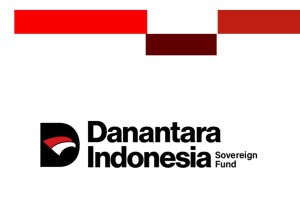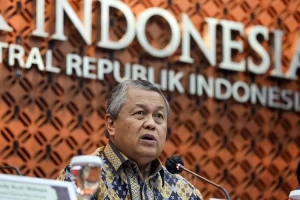ExxonMobil supports Indonesia’s CCS development program, target
Published on 21/02/2025 GMT+7 Reading time 3 minutes
U.S. oil and gas company has expressed its support for Indonesia’s Carbon Capture and Storage (CCS) development program and target, actively working with the Indonesian government and state-owned oil company PT Pertamina to establish CCS infrastructure in key industrial zones that will help position Indonesia as a regional hub for carbon storage.
ExxonMobil is currently progressing with the study of a CCS project in Sunda-Asri basin, offshore Southeasr Sumatra, designed to capture emissions from major industrial sources such as cement factories, steel plants, and petrochemical facilities and store the captured CO2 underground.
“Indonesia has the right geological formations, skilled workforce, and evolving regulatory support to become a leader in CCS,” President of ExxonMobil Indonesia, Carole J. Gall, told a public lecture at Bandung Institute of Technology in Bandung on Wednesday, February 19, 2025.
However, she emphasized that the country must accelerate policy development to remain competitive with neighboring countries like Malaysia and Australia, which are also advancing their CCS projects.
ExxonMobil underscored the importance of reducing its own emissions, highlighting initiatives such as zero routine flaring in Banyu Urip, an ExxonMobil-operated oil facility in East Java. By minimizing gas releases and optimizing facility operations, energy production will remain both efficient and environmentally responsible.
CCS is increasingly seen as a critical tool in the global energy transition, particularly for industries with hard-to-abate emissions. ExxonMobil’s efforts align with Indonesia’s broader goal of reducing greenhouse gas emissions while maintaining energy affordability and reliability.
ExxonMobil suggests that in order to fully realize CCS’s potential in Indonesia, addressing regulatory challenges and providing financial incentives such as carbon pricing or tax credits could be essential to attract large-scale investment.
With Indonesia positioning itself as a potential CCS hub, ExxonMobil’s ongoing efforts could play a crucial role in the country’s journey toward achieving net-zero emissions while ensuring long-term energy security.
ExxonMobil recognizes CCS as a crucial technology for reducing greenhouse gas emissions while maintaining a reliable energy supply. It emphasizes that achieving net zero requires both innovation and global cooperation, urging policymakers to implement structured carbon regulations that do not disrupt industrial growth.
The discussion in Bandung also highlighted the European Union’s aggressive carbon pricing policies, which have encouraged emissions reductions within Europe but have inadvertently led to the relocation of industries to higher-carbon regions. This shift has raised concerns that carbon-intensive manufacturing is merely being displaced rather than genuinely reduced. Therefore, a global approach to carbon pricing is needed to prevent carbon leakage and ensure that emissions reduction efforts are effective across all regions.
Indonesia’s energy transition strategy was another focal point of the discussion, with Minister of Energy and Mineral Resources Bahlil Lahadalia having consistently emphasized that Indonesia must strike a balance between fossil fuel development and renewable energy expansion.
While Indonesia remains committed to CCS deployment and geothermal energy growth, it also recognizes the continued importance of oil and gas investments to sustain economic development.
Already have an account? Sign In
-
Start reading
Freemium
-
Monthly Subscription
30% OFF$26.03
$37.19/MonthCancel anytime
This offer is open to all new subscribers!
Subscribe now -
Yearly Subscription
33% OFF$228.13
$340.5/YearCancel anytime
This offer is open to all new subscribers!
Subscribe now






